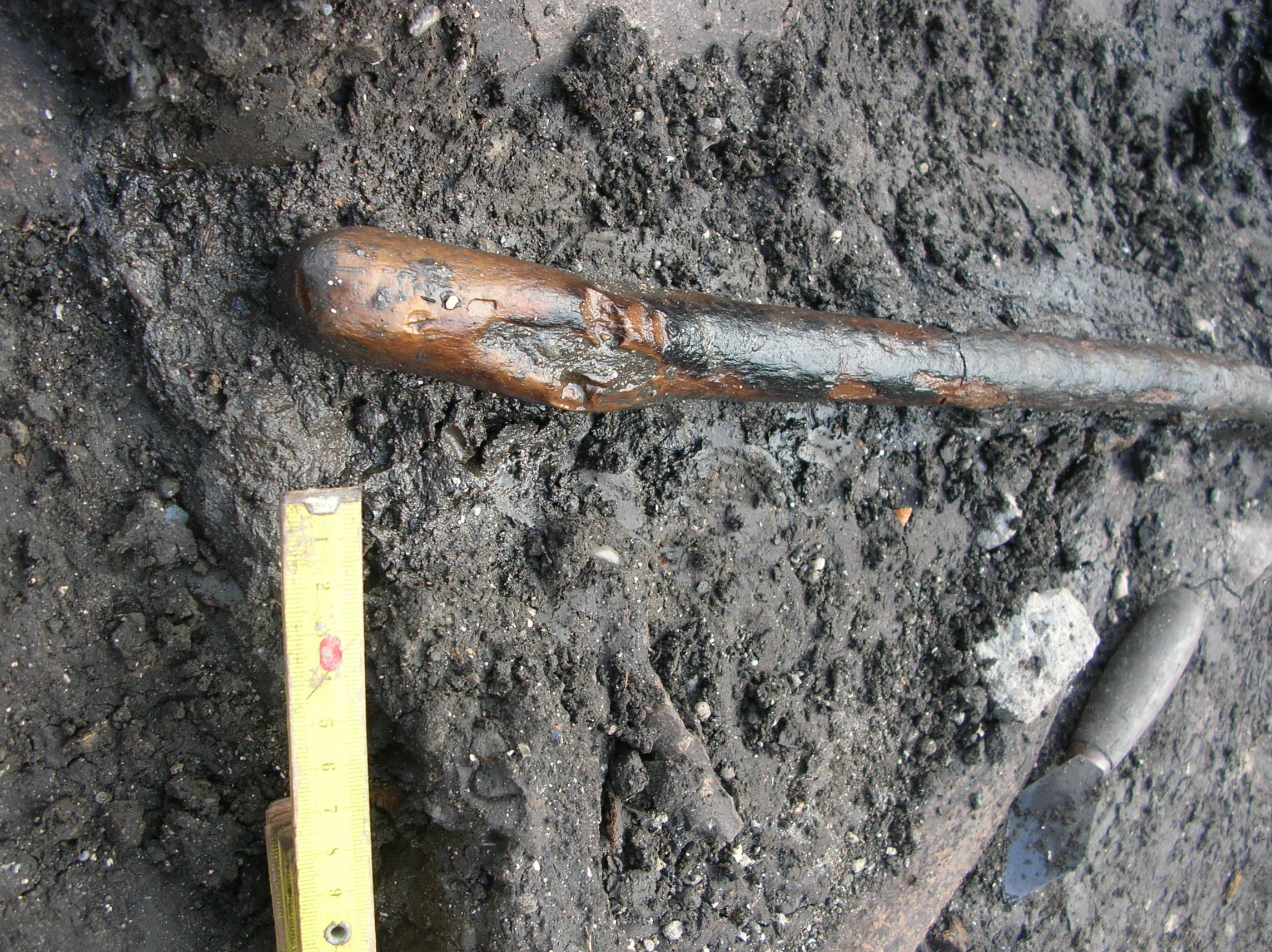
Archaeologists have discovered a cache of 58 wooden tools used by Neanderthals living in Northern Italy. Although the tools aren't the first of their kind to be discovered, it's a very important find given how difficult it is for wooden remains to survive for more than 170,000 years, as these have. The discovery is announced in a new paper published in the journal Proceedings of the National Academy of Sciences.
The artifacts were boxwood sticks, ranging from less than six inches long to about three feet. They had each been peeled of their bark and stripped of branches, and about a fifth of them had been carefully charred in fire along all but the tip. The team of archaeologists who found them believe that these were used by Neanderthals the same way modern humans in certain indigenous groups use a tool called the digging stick to collect edible plants.
The archaeologists behind the new paper weren't content only to find the tools; they also decided to try to make their own. That isn't just a craft project—lead author Biancamaria Aranguren, an archaeologist at the ministry for cultural heritage in Florence, explained that this "experimental archaeology" helps archaeologists understand how Neanderthals made and used the artifacts.
The team behind the new paper also believes that means female Neanderthals were present and working at the site. "The discovery of the digging sticks at Poggetti Vecchi offers the opportunity to distinguish probably the active presence of women, something that rarely happens in prehistoric sites," Aranguren wrote in an email to Newsweek. "This finding indicates that the area was frequented by the whole human group of early Neanderthals, both men and women, because it offered rich plant and animal resources, favored by the hot springs, in a period [that was] getting colder."
Those same hot springs made the excavation a little unusual, Aranguren added, because the site had to be pumped dry during the day. But they are responsible for preserving the wooden artifacts for so many tens of thousands of years, with the humid conditions keeping the wood from rotting away.
Read more: Neanderthals Weren't as Incestuous as We Thought, Ancient DNA Reveals
And that makes the cache a precious resource for learning about what Neanderthals were really doing in Italy more than 170,000 years ago. "I think this paper is a good example of how we are just starting to get a really good handle on what the non-stone technology of Neanderthals really entailed," Michelle Langley, an archaeologist at the Griffith University in Australia, who was not involved in the study, wrote Newsweek. "We are now able to understand much more of their everyday toolkit."
Langley adds that she's not convinced use of the sticks was necessarily limited to female Neanderthals in the way scientists have observed in modern indigenous groups in Australia. There's no real way now to re-create the social structures of a species that left no records and has gone extinct. But regardless of the gender dynamics at play, she says that material evidence of the gathering side of prehistoric hunter-gatherer lifestyles is usually difficult to find.
Uncommon Knowledge
Newsweek is committed to challenging conventional wisdom and finding connections in the search for common ground.
Newsweek is committed to challenging conventional wisdom and finding connections in the search for common ground.
About the writer
Meghan Bartels is a science journalist based in New York City who covers the science happening on the surface of ... Read more
To read how Newsweek uses AI as a newsroom tool, Click here.








